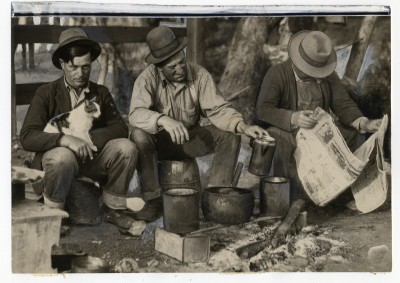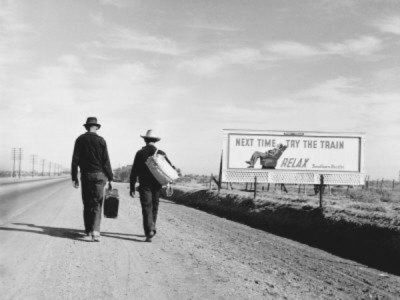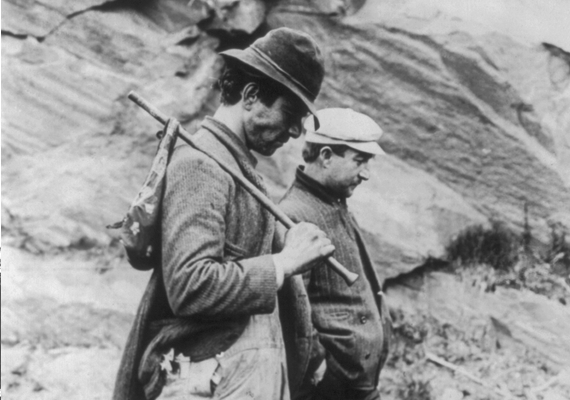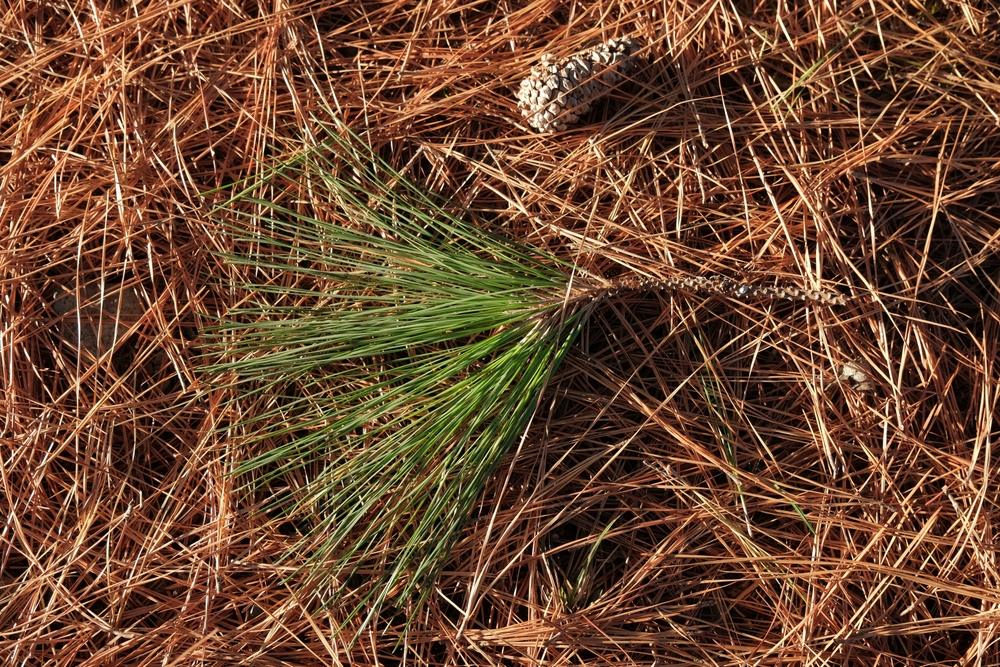As long as man has organized into society, there have been those on the fringe. These were people who, for one reason or another, just didn’t fit into polite society.
Such were the hobos of our nation’s past. We tend to think of hobos as bums who stole rides on trains and lived in shanty towns. But in some cases, they were traveling workers who would go where there was work and move on when the job was done.
Building this country required a huge amount of manpower, especially when you consider that much was built by human hands rather than power equipment. Projects like the Transcontinental Railroad and the Hoover Dam required workforces numbering in the thousands, and hard-working men who came and went with the job. They lived in shanty towns, because that’s all there was at the end of the tracks and they carried little with them, because they knew they’d be moving on.
These were tough men, accustomed to backbreaking work and long hours. They survived and endured, becoming a forgotten part of our country’s history. Yet the work that they did has often survived and become part of making our country what it is today.
This Cool-To-The-Touch Lantern Provides 100,000 Hours Of Emergency Backup Lighting
Looking back at the lives of these men we can see that their lifestyle was built around the need to survive. Basically, everything they did was based on that one need.
There are quite a few lessons we can learn from them:
1. Be tough
Physical toughness is essential for surviving in adverse circumstances. A lot of us in the survival movement aren’t as physically fit as we need to be (me included). But toughness goes beyond just being physically fit. A boxer learns to take blows, just as he learns how to give them. Strength and agility allow him to give them, but toughness allows him to take them. If you’re not tough, you’re not going to be able to take the blows that life gives you; you’ll fold and just wait to die.
There are two types of toughness: physical and mental. Of the two, mental toughness can be harder to develop than physical. If your mind can’t take the blows and bounce back, you are at a disadvantage. Your mind has to be able to accept the changing reality of a crisis situation or a disaster, quickly overcome the grief, and move into survival mode.
This is all about training. The better trained you are, the better you can adapt. Training also gives you confidence, so that you know you’re able to survive.
2. Learn a variety of useful kills
 Hobos did whatever the job called for. While they may not have been experts in any one trade, they were capable of working in a number of them. One month they might be busting broncos and the next swinging a double jack in a mine.
Hobos did whatever the job called for. While they may not have been experts in any one trade, they were capable of working in a number of them. One month they might be busting broncos and the next swinging a double jack in a mine.
Today’s society has become so specialized that in some cases one engineer can only work on one part of a project. He’s lost when he looks at the rest. But in Henry Ford’s day, the guy who designed the engine could also design the body.
In a survival situation, you need to have a wide variety of skills. If your home is damaged by a hurricane and you need to make it safe to sleep in, you don’t have to be a master carpenter. But you will probably need to be able to cut boards and nail them together. You’re probably also going to need to know a little plumbing and electrical work.
3. Develop a minimalist lifestyle
When you’re on the go, you can’t take a lot of extra baggage with you. You’ve got to cut things down to what you really need. Our modern lifestyle is so cluttered with stuff that we’d need a backpack the size of a semi-trailer to bug out.
Learn what you need and then cut down to that point. If you’ve got stuff in your house that you never use, then why do you have it? Really, if you haven’t used it in a year or two, you probably won’t. So, pass it on to someone who can use it and make room in your life for what you need.
I remember the nine years my wife and I lived in our motorhome, with our three kids. We couldn’t accumulate a lot of stuff, because there really wasn’t anywhere to keep it. We had to limit ourselves to what was important, and if something wasn’t important, we had to let it go.
4. Community is important for survival
Hobos typically gathered together in communities, wherever they were working. That way they could help each other out. Cooking for 10 people is easier than cooking for one, and by doing so, everyone doesn’t have to carry a pot around with them. One would bring the pot and the others would bring the ingredients.
When you’re part of a community you also tend to watch out for each other. If you’re by yourself, you might not see what’s happening to you. For example, hypothermia can set in in such a subtle way that you freeze to death, without even realizing what’s happening to you. But if other people are around, they’ll likely notice you’re not well and help.
5. Learn to live off the land
 Most hobos could recognize edible plants and those which could serve as medicines. While they bought food, they augmented what they bought with what they found. Knowing what you can eat can mean the difference between a full belly and starving to death. Knowing what you can use for medicine can also save your life.
Most hobos could recognize edible plants and those which could serve as medicines. While they bought food, they augmented what they bought with what they found. Knowing what you can eat can mean the difference between a full belly and starving to death. Knowing what you can use for medicine can also save your life.
God has provided a wide range of foods and medicines in nature around us. But you’ve got to know what to use and how to use it. When you’re living that minimalist lifestyle, you really need that knowledge.
6. Nothing is beneath you
Throughout history, there have been people out of jobs because they wouldn’t take one that’s beneath them. While I can understand that to some extent, that pride can be deadly. When things go bad, such as in a financial collapse, we’re all going to have to do whatever we can, no matter how much education we have or what we did before.
New Survival Energy Product Makes Every Window A Powerful Solar Charger
There’s no room for pride when it comes to surviving a crisis.7. Quit Worrying and Do What You Can
7. Quit worrying and do what you can
Part of the reason that hobos are seen as lazy and shiftless is that they weren’t worriers. They did what they could and left the rest up to divine providence. We could all learn from that. Yes, there is always a part that we are to do. If we don’t work, we’re not going to eat. But on the other hand, worrying never added a day to anyone’s life. When you’ve done what you can, just hope and pray it’s enough. The rest is beyond your capability.
Worry causes incredible health problems. High blood pressure is caused more by worry, than by any other reason. Why do you think they call it “hypertension?” That literally means, “too much tension” or “too much stress.” Quit stressing out and get to work. Do your part and then follow the example of the hobos, putting the rest in God’s hands.
What survival lessons would you add to this list? Share your ideas in the section below:










